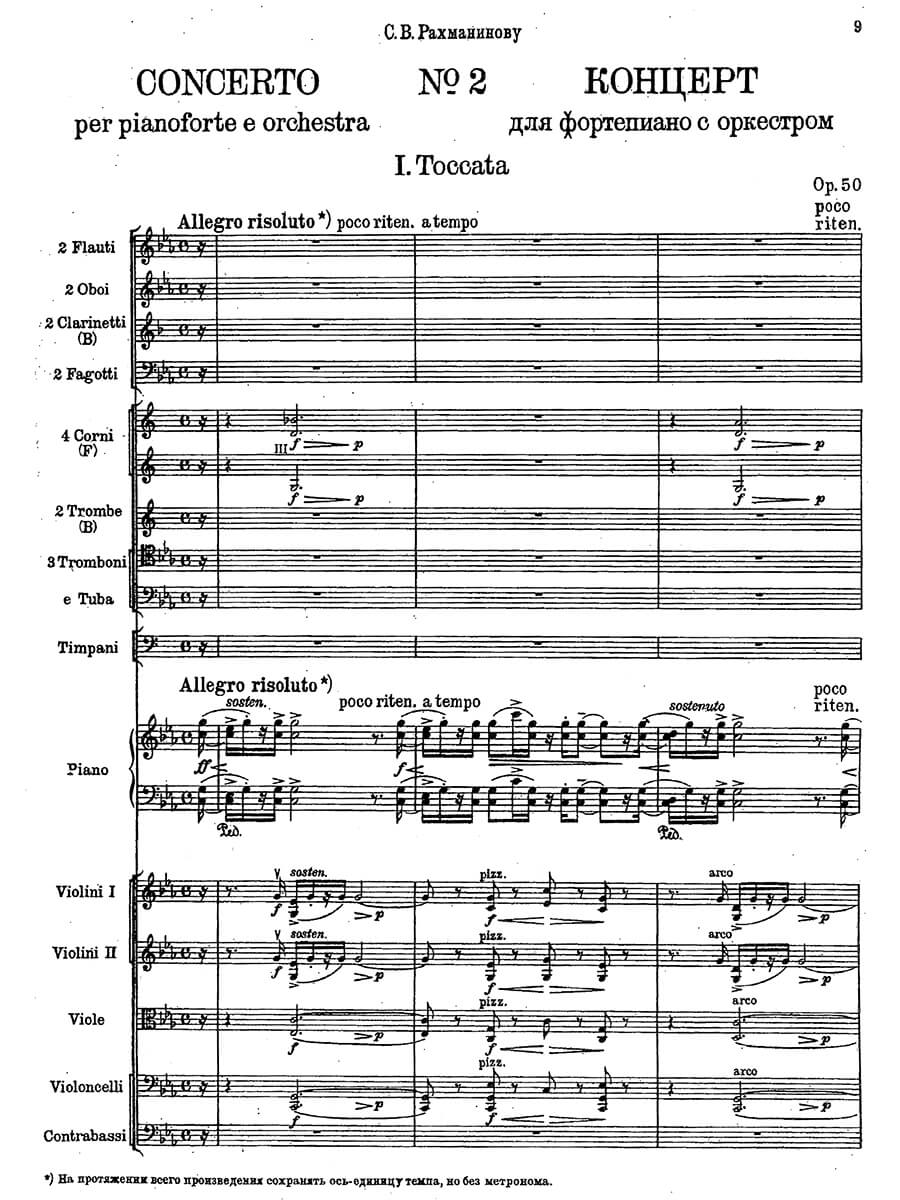Piano Concerto No. 2 in C minor Op. 50
Medtner, Nicolai
46,00 €
Preface
Nicolas Medtner – Piano Concerto No. 2 in C minor, Op. 50
(b. 5 January 1880 [O.S. 24 December 1879], Moscow, Russian Empire – d. 13 November 1951, London, Great Britain).
(1926-7)
Toccata p.9
Romanza p.94
Divertimento (Rondo) p.145
Preface
“Every musician who has observed that he does not succeed in saying anything new in the one and only language of our art, must attribute his failure to himself, and not to the language of music. If we are unable to be silent at the proper time, we have certainly no right to mutilate our language by senseless experiments in the imitation of it.” (Medtner The Muse and Fashion (trans. Swan) Haverford, Pa (1951) p. 106)
*
Nikolai Karlovich Medtner inhabited turbulent times. He lived through two world wars, political and musical revolutions, artistic neglect, exile and chronic ill-health. Nevertheless, his great friend, compatriot and fellow-exile, Sergei Rachmaninov was to pronounce him “…the greatest composer of our generation…”. Given that the generation in question included Bartok, Busoni, Debussy, Prokofiev, Ravel, Schoenberg, and Scriabin this was undoubtedly high praise indeed. Such was Rachmaninov’s regard for Medtner that he dedicated his own Fourth Piano Concerto to him. Rachmaninov is the dedicatee of the Medtner work presented in this edition.
Medtner’s artistic creed is expressed in his 1931 book The Muse and Fashion. The inexorable movement away from tonality in the traditional sense during the early decades of the twentieth century was somewhat bewildering to Medtner who, as evidenced by the above quotation, valued silence over arbitrary speculation. A reputation of arch-conservatism, even retrogression consigned Medtner largely to anonymity. A propensity toward introversion and failure to court popularity further enhanced perceptions of his aloofness. Unlike Rachmaninov, Schoenberg and others of the post war and revolutionary exiles Medtner did not manage to relocate himself to the USA. Instead he lived until his death in the quiet UK suburb of Golders Green, London. A blue plaque marks his residency there at no. 69, Wentworth Road. Perhaps his legacy might have been different had he been included in the same move so many of his European contemporaries had undertaken across the Atlantic. …
Read full preface / Das ganze Vorwort lesen> HERE
Score Data
| Edition | Repertoire Explorer |
|---|---|
| Genre | Keyboard & Orchestra |
| Printing | Reprint |
| Pages | 232 |
